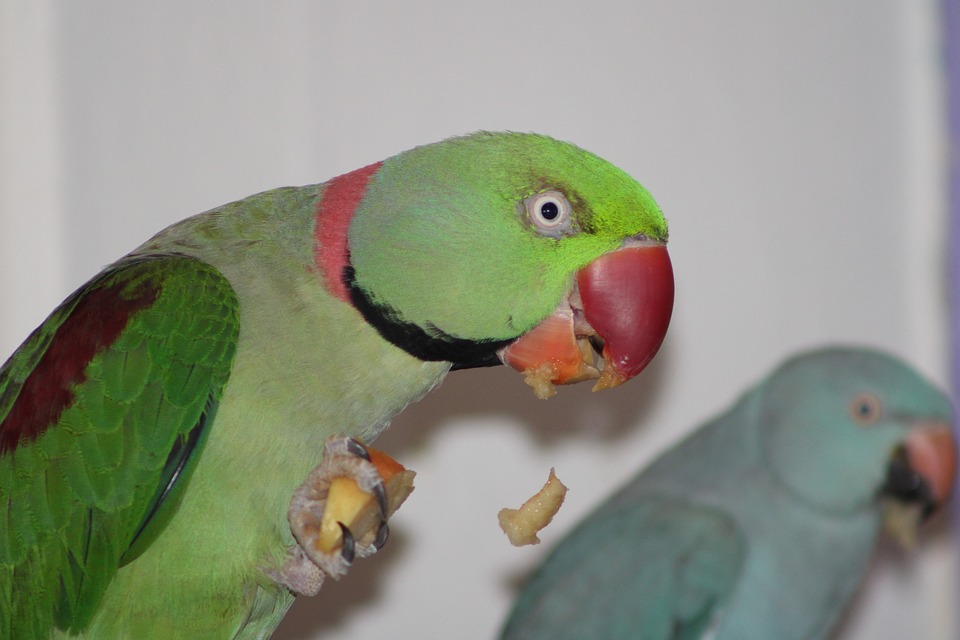Parrots are intelligent and social creatures that thrive on routine and predictability. Establishing a consistent daily routine for your feathered friend is crucial in reducing stress and promoting their overall well-being. In this article, we will explore the benefits of a structured routine for parrots, provide practical tips on how to create one, and address some frequently asked questions regarding parrot behavior and daily routines.
Benefits of a Structured Routine for Parrots
Implementing a predictable daily routine offers several advantages for your parrot’s mental and physical health:
1. Reduced Stress: Parrots are highly sensitive to changes in their environment. A consistent routine helps them feel secure and lowers their stress levels. When parrots know what to expect, they are less likely to exhibit anxious or aggressive behaviors.
2. Better Sleep Patterns: Parrots require adequate sleep to maintain optimal health. A consistent routine promotes regular sleep patterns, ensuring that they receive the necessary rest. This, in turn, enhances their cognitive abilities and overall well-being.
3. Enhanced Bonding: Spending quality time with your parrot on a daily basis strengthens your bond with them. A routine allows you to allocate specific periods for interaction, training, and play, fostering a deeper connection between you and your feathered companion.
4. Improved Mental Stimulation: Parrots are highly intelligent and thrive on mental stimulation. A structured routine that includes puzzle toys, training sessions, and enrichment activities keeps their minds active and prevents boredom, which can lead to destructive behaviors.
Tips for Creating a Parrot Routine
Establishing a consistent daily routine for your parrot requires careful planning and consideration. Here are some practical tips to help you create a structured routine that suits your parrot’s needs:
1. Establish Set Feeding Times: Offer your parrot regular meals at the same times each day. Consistency in feeding schedules helps regulate their metabolism and prevents overeating. Include a variety of fresh fruits, vegetables, and a balanced diet specific to your parrot’s species.
2. Allocate Time for Social Interaction: Parrots are highly social animals and require daily socialization with their human caregivers. Set aside specific periods each day for one-on-one interaction, such as talking, playing games, or simply sitting together. This social bonding time is crucial for their emotional well-being.
3. Include Enrichment Activities: Parrots are curious by nature and need mental stimulation to prevent boredom. Incorporate enrichment activities into their routine, such as providing puzzle toys, foraging opportunities, and introducing new toys regularly. This will keep their minds engaged and prevent destructive behaviors.
4. Dedicate Time for Training: Parrots enjoy learning new tricks and commands. Allocate a specific time each day for training sessions, using positive reinforcement techniques. This not only provides mental stimulation but also strengthens the bond between you and your parrot.
5. Maintain Consistent Sleep Patterns: Parrots require uninterrupted sleep of 10-12 hours each night. Ensure they have a quiet, dark, and comfortable sleeping area. Establish a routine where they are covered or placed in their sleeping quarters at the same time each night, allowing them to get the rest they need.
FAQs about Parrot Behavior and Daily Routines
Q: How long should I spend interacting with my parrot each day?
A: Aim for a minimum of 1-2 hours of direct interaction with your parrot daily. This time can be divided into shorter sessions throughout the day to ensure regular socialization.
Q: Can I change my parrot’s routine occasionally?
A: While some minor adjustments may be necessary, try to maintain a consistent routine as much as possible. Parrots thrive on predictability, and frequent changes can cause stress and behavioral issues.
Q: What if my parrot seems resistant to the routine?
A: It’s common for parrots to take some time to adjust to a new routine. Be patient and persistent, offering positive reinforcement and rewards when they engage with the routine. With time, they will become more comfortable and adapt to the structure.
Q: Are there any specific activities I should avoid in a parrot’s routine?
A: Avoid exposing your parrot to sudden loud noises, constant disruptions, or prolonged periods of isolation. These can lead to stress and negative behaviors. Additionally, ensure their environment is free of toxic substances and hazards.
Establishing a predictable and consistent daily routine for your parrot is instrumental in reducing stress, promoting well-being, and strengthening your bond. By following these tips and being attentive to your parrot’s individual needs, you can create a routine that enhances their overall quality of life.









